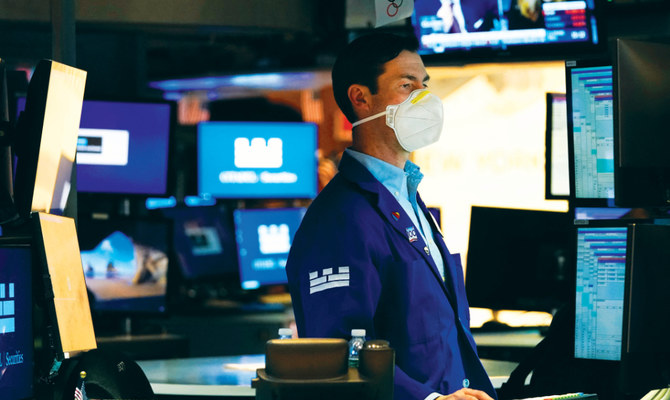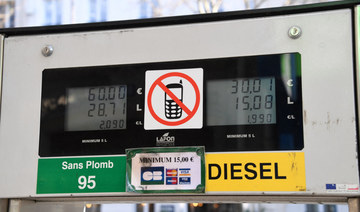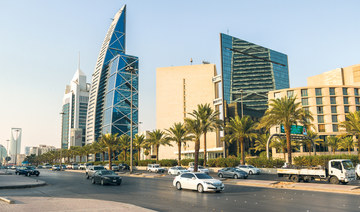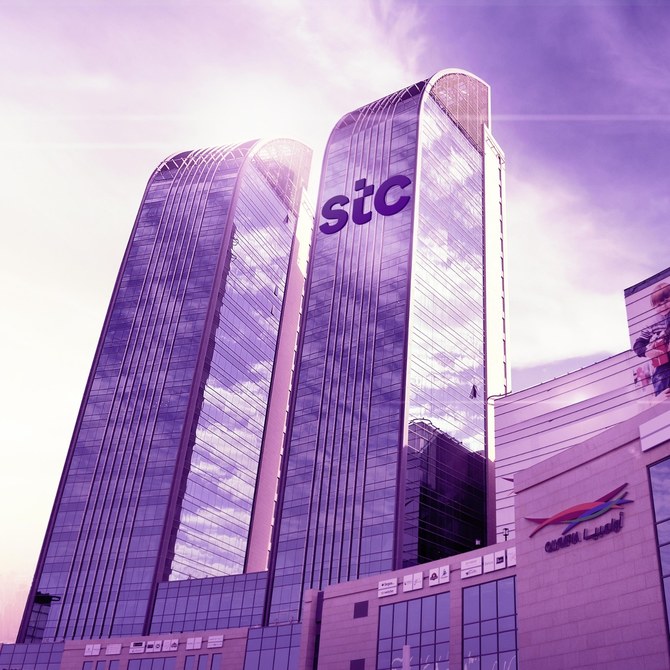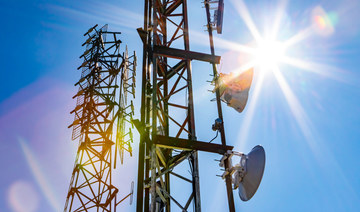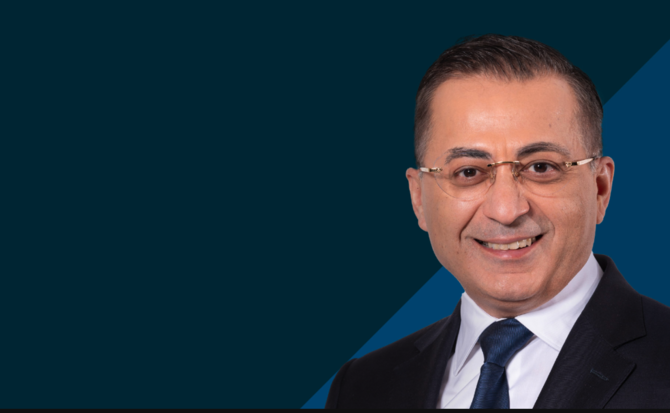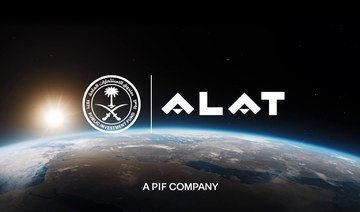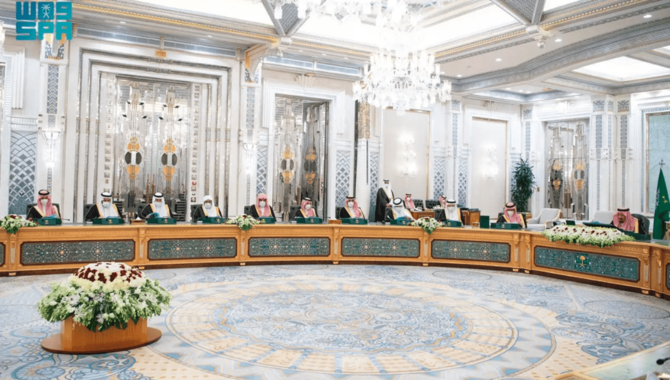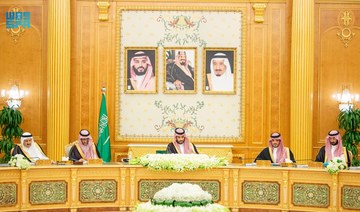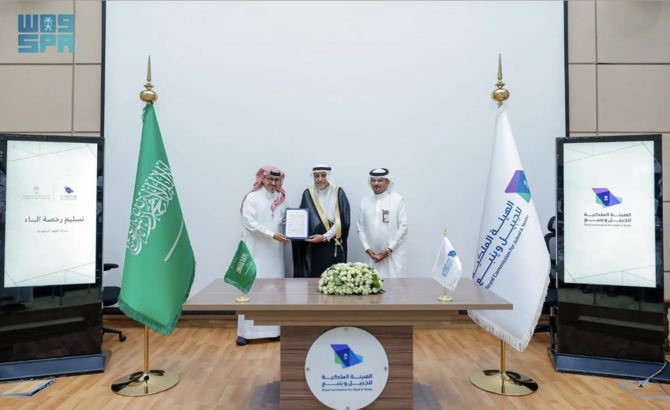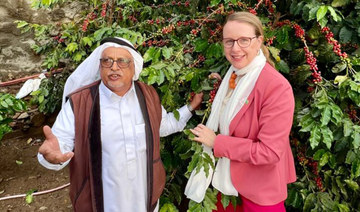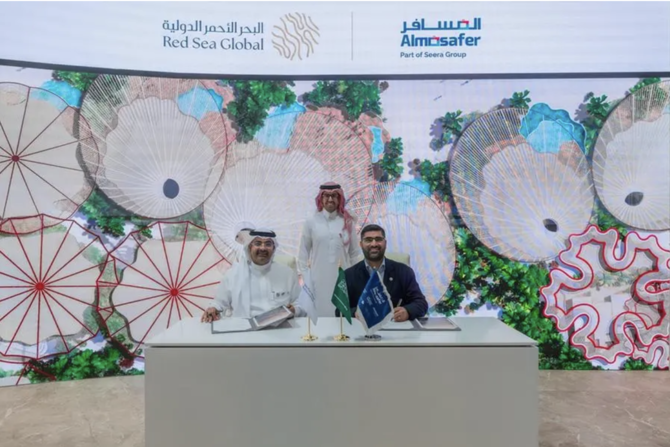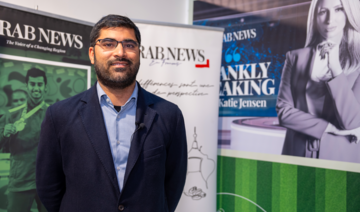LONDON: Crude oil’s latest bull run, which saw Brent climb to its highest level since 2014 on Tuesday, has put geopolitics front and center of market concerns.
Having spent the last year fretting over supply, markets and investors appear suddenly more spooked by the what ifs of global politics and its impact on still tight supplies.
This week’s drone attack by Iranian-backed Houthi rebels on the UAE, along with fears that Russia’s aggression towards neighboring Ukraine will lead to war, are nudging crude prices higher. The spike comes despite a view in some circles that supply issues are abating when compared to last year. A consensus view from energy analysts suggests current geopolitical events, primarily increased Middle East tensions and Russia’s saber-rattling, have added almost 12 percent to the price of a barrel of crude oil.
Alan Gelder, vice president for refining, chemicals and oil markets with UK energy consultant Wood Mackenzie, said: “Broadly speaking, geopolitics currently accounts for around $10 of the oil price.” Following the UAE attack, Goldman Sachs upwardly revised its price forecast, warning on Tuesday that Brent could reach $90 per barrel in the next two months and hit $100 in the second half of this year. However, Gelder believes triple figure oil prices could prove wide of the mark.
He told Arab News: “We don’t believe the oil market will be as tight in 2022 as it was in 2021. We’re expecting US oil production to grow because the investment discipline of recent years will now enable companies to drill and increase investment supply while still achieving high returns for investors.”
He added: “One can never say never, but we think forecasts of $100 oil are slightly overrated. The rig count is increasing in the US, albeit modestly, so supply will increase this year. Geopolitical events are of course hard to predict and are capable of causing further price shocks, though it would take an extreme production outrage at a major supplier for the current fundamentals of supply and demand to be impacted.” That said, it is worth remembering geopolitical events were behind the first big jump in oil prices last year.
In March 2021, just after OPEC and its OPEC+ allies announced they would stick to their production cuts, the Houthi militia launched a failed attack on Saudi Arabia’s Ras Tanura oil-export terminals and refinery.
FASTFACT
A consensus view from energy analysts suggests current geopolitical events, primarily increased Middle East tensions and Russia’s saber-rattling, have added almost 12 percent to the price of a barrel of crude oil.
There was no damage to Ras Tanura, but the attack sent Brent crude briefly above $70 a barrel.
The six-year war in Yemen, where Saudi Arabia is leading a coalition of countries fighting the Iran-backed Houthis, has seen a number of attacks on the Kingdom’s energy infrastructure and oil tankers in the Red Sea and the Persian Gulf.
Indeed, a report last month by a respected Washington-based think tank, the Center for Strategic and International Studies, said Houthi attacks on Saudi Arabia more than doubled during the first nine months of 2021 compared to the same period a year earlier. The report said Iran’s Islamic Revolutionary Guard Corps and Lebanese militia Hezbollah played a critical role in providing Houthis with weapons, technology and training.
Concerns about potential disruptions to Saudi output on prices should also be coupled with the unlikelihood of any easing of sanctions against Iran — a huge crude producer, but one whose meager exports are now reliant on smuggling.
Fast forward to today, and the bloody unrest in Kazakhstan — an OPEC+ member and second largest oil producer in the former Soviet Union with almost 2 million barrels a day — had already pushed Brent almost 5 percent higher in the early days of this month, to $83. Ironically, the initial protests against the government were sparked by an increase in the price of liquid petroleum gas, which many Kazakhs use to run their cars.
The UAE attack, which has nudged Brent a little closer towards Goldman Sachs’ $90, is the most significant strike by Houthis against the Emirates since its military withdrawal from the Yemen conflict in 2019, though it still supports forces fighting the Houthis.
Meanwhile, the buildup of Russian troops on Ukraine’s border and fears that Vladimir Putin will invade, unleashing a NATO response of economic sanctions, or in a worse case scenario, a wider conflict, are sending prices higher still.
Tensions linked to Gazprom’s Nord Stream 2 pipeline project have already played a large role in rocketing gas prices across Europe. Gas prices have fallen sharply so far this year, but Ukraine is a vital supply route for Russian oil and gas supplies to Europe, which is heavily dependent on Russia for its energy needs.
Giovanni Staunovo, energy strategist with UBS, said: “There is probably also a geopolitical risk premium related to tensions in Eastern Europe and the Middle East, which is however difficult to quantify. Historically, such risk premia only remained in the price if those tensions triggered some supply disruptions. That said, currently there are no disruptions.”
A more pertinent risk for oil prices perhaps lies in the fundamentals of the market, primarily concerns about OPEC’s ability to pump more crude if required by higher demand. Several OPEC members have struggled to raise output to required quota levels, and speaking this week, Saudi Arabia Energy Minister Prince Abdulaziz bin Salman said the Kingdom had no plans to make up for their production shortfalls.
Staunovo said: “Some oil demand concerns related to the omicron variant have not materialized, with oil demand holding up better than some feared back in December. But the oil market is tight, with petroleum inventories, and crude and oil products, standing at a multi-year low, and if oil demand keeps recovering back to 2019 levels, available spare capacity should also fall to low levels, which makes the oil market and prices very sensitive to any supply disruptions.”



